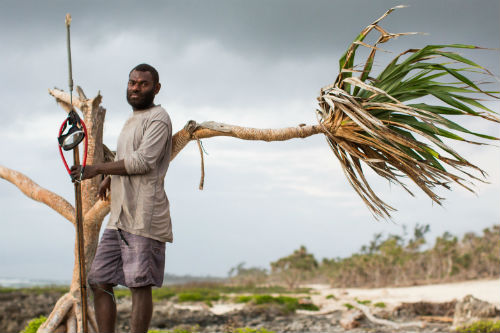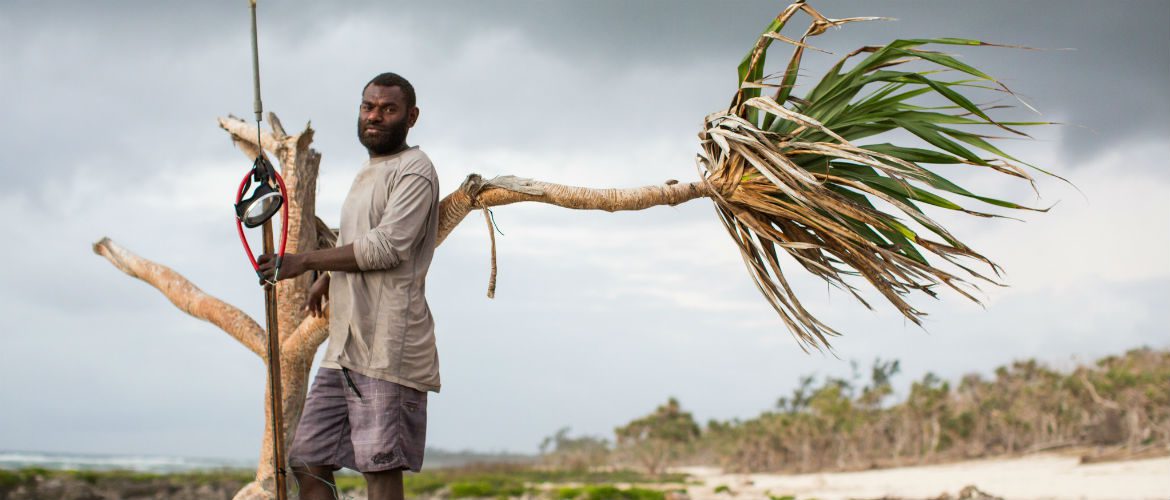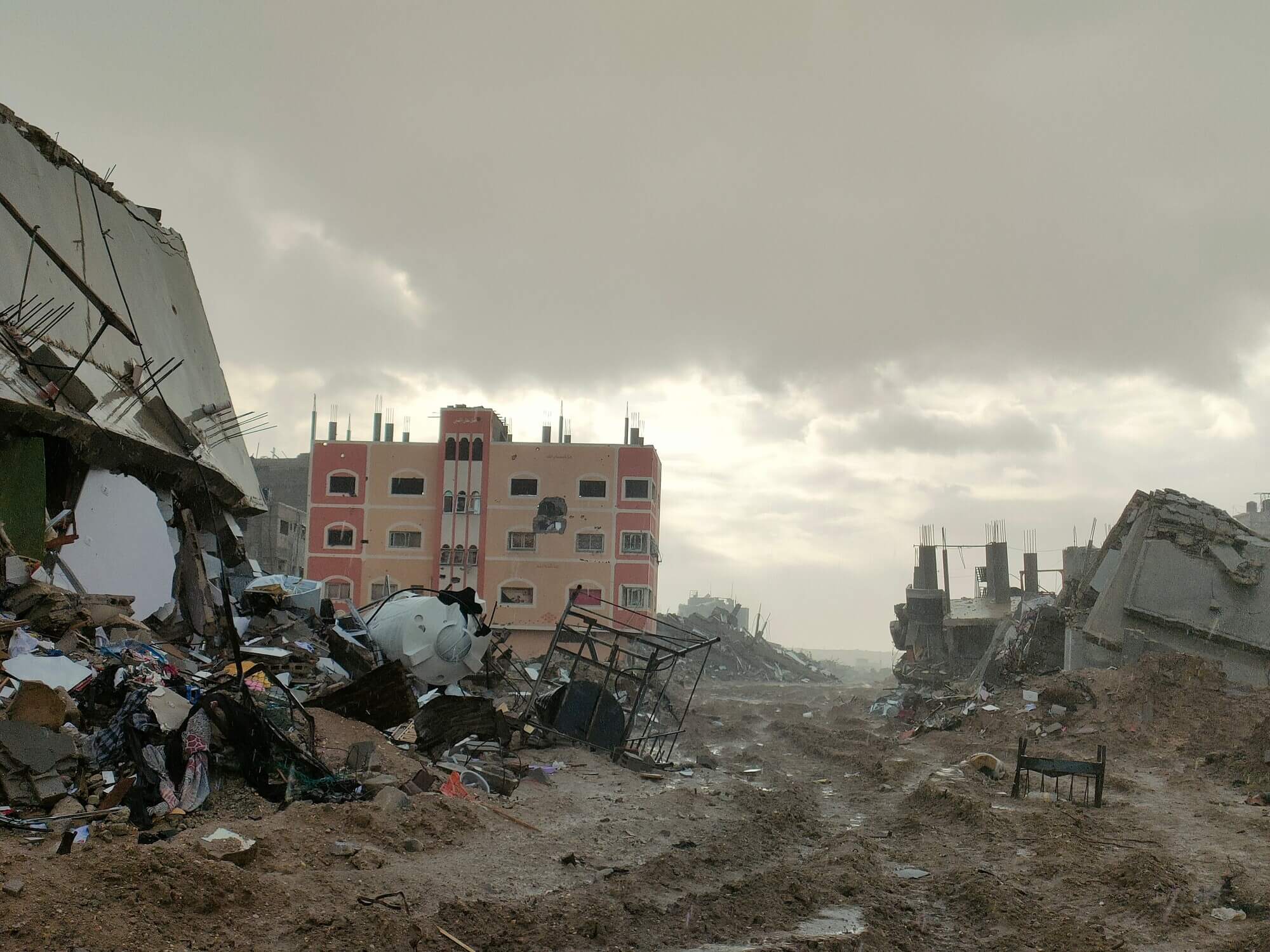By Amos Kalo, Resilience Manager with Oxfam in Vanuatu
More than one year after Tropical Cyclone Pam ripped through Vanuatu, families are still battling the devastating effects of this extreme weather event and other climate change related impacts.
I’ve seen people walking through their food gardens shaking their heads. It is worrying for families to find food to feed children in order to attend school. In the 35 years I’ve lived on Efate island, no one has seen it this dry.
Communities on Vanuatu’s inhabited islands are becoming increasingly concerned about changing weather patterns in the Pacific, and the threat this poses to their water sources, food security and livelihoods.
Daniel, a farmer and fisherman on Vanuatu’s main island of Efate, told one of my colleagues recently that there is not enough food for his family.
“Our crops cannot survive the sun; they are dying,” says Daniel.
Communities like Daniel’s have been relying on traditional practices to cope. But there’s now strong new evidence that long-standing island customs may have reached their limits, and that these need to be supplemented with additional support from governments and NGOs to enable communities to adapt.
Over the last three years I’ve been working with women, men and young people to help them prepare for and respond to natural disasters and adapt to the adverse impacts of climate change.
This includes working with local partners to support community members to increase their skills to deal with a wide range of climate scenarios.
Community members plan and implement their own responses like improving farming and agricultural methods to yield better crops; increasing access to safe water; and revegetating coastal areas to reduce the impact of wind and tidal surges during severe weather events. Community members are also encouraged to strengthen the role of women when important decisions are made.
In November 2014, and again last year, I was very fortunate to be able to accompany a researcher from the Stockholm Environment Institute, Jon Ensor, as he documented and reflected on our work.
One of the key recurring messages we heard from communities was that they felt increasingly outwitted by changes in their climate. There was clearly a concern that the old ways of dealing with climatic changes and severe weather events were not working as well as they had.
In the aftermath of Tropical Cyclone Pam
In the aftermath of Tropical Cyclone Pam (TCP), communities talked about how the severity of the storm was beyond anything they’d experienced for a very long time — if ever. And with the intensity of cyclones like Pam expected to increase with worsening climate change, the clear message from local villagers was for stronger global action to stem climate change, and more assistance to adapt to its worsening impacts.
In many of the communities we visited, peoples’ livelihoods have been severely affected by Pam. A Category 5 cyclone, Pam destroyed housing, infrastructure and contaminated water sources.
With most people relying on food gardens to feed their families and supplement their livelihoods, damage to cash crops like kava and peanuts have reduced peoples’ incomes, and the cyclone has — together with the El Nino dry period being experienced across Vanuatu — prevented many families from regrowing their gardens and rebuilding their lives.
Without urgent international action, the impacts of climate change will worsen here. I really worry about how this will impact the people of Vanuatu and the sacrifices they will need to make to survive.
The Stockholm Institute’s research has found that our community-based programs are a valuable way of supporting local communities. And I’m certainly keen to extend the lessons learned from this research into even more villages.

Act on climate and save lives.
More needs to be done for communities like Daniel’s. Tell the Australian Government you want want real leadership on climate change.



